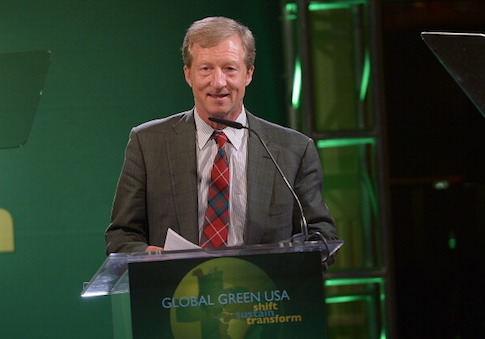An Arizona judge ruled Monday that a question asking Arizona voters to approve an increase in the state's renewable mandate should be placed on the November ballot.
The question, now known as Proposition 127, seeks to amend the state's constitution by boosting Arizona's renewable energy portfolio from 12 percent in 2020 to 50 percent by 2030.
Backers of the initiative, Clean Energy for a Healthy Arizona (CEHA), previously submitted about 480,000 signatures to get the question before voters this fall. However, after the secretary of state allowed the measure to proceed, an opposition group filed a lawsuit seeking an injunction claiming organizers knew in advance the number of signatures that would be found valid would fall short.
Matthew Benson, a spokesman for the opposition group Arizonans for Affordable Electricity (AFAE), said an appeal to the Arizona Supreme Court would be immediate.
"While disappointing, [Monday's] court decision does not alter our belief and that of plaintiffs that the 'Clean Energy for a Healthy Arizona' initiative failed to collect the minimum number of valid signatures necessary to qualify for the November ballot," Benson said in an emailed statement. "In fact, the initiative campaign admitted as much in the under-oath testimony of its campaign manager and via internal campaign documents revealing the campaign itself believed it had fallen short of the 225,963-signature ballot threshold mandated by the state."
"Proposition 127 will give voters a chance to finally utilize Arizona's greatest asset—its sunshine," said DJ Quinlan for CEHA, as reported by the Arizona Republic.
If the Arizona Supreme Court wants to overturn the Monday ruling, it would need to act fast. According to a source at the secretary of state's office, the statewide ballot language must be finalized this Friday in order to turn that material over to county recorders who will add their local races and questions, and then begin preparing ballots for printing.
With the exception of a five-dollar donation from a single citizen, CEHA was bankrolled completely by a PAC controlled by California billionaire and political activist Tom Steyer, according to campaign finance documents available from the Arizona secretary of state's office.
AFAE, meanwhile, is funded by Pinnacle West Capital Corp., which is the parent company of Arizona Public Service, the largest electricity provider in the state.
As with nearly all such measures brought by the petition process, signatures were tested using a sampling method. That testing estimated 329,000 signatures to be valid when 226,000 were required.
From the outset, AFAE had challenged the signature-gathering process used, and on several occasions claimed that people with felony records were among the paid signature gatherers. If a felon had not had their civil rights restored, their work would run counter to Arizona law which requires any signature gatherer to at least be eligible to vote.
The judge in the injunction hearing dismissed numerous petition books submitted by felons who were found not to have had their civil rights restored. However, that wasn't enough to alter the previous decision by the secretary of state to certify the question for the ballot.
AFAE also pointed to deposition testimony from a petition organizer who acknowledged that just days prior to submitting the signatures, their own internal estimate was that about 220,000 of the signatures were valid—about 6,000 short.
But in other media reports, lawyers for AFAE claimed that the estimate was only for signatures for which the campaign was completely certain would meet every validity test, and organizers were banking on the idea that of the hundreds of thousands of remaining signatures, enough would also pass, thereby enabling the question to go forward.
Overshooting the number of signatures needed in such a manner is a common practice for petition efforts.
